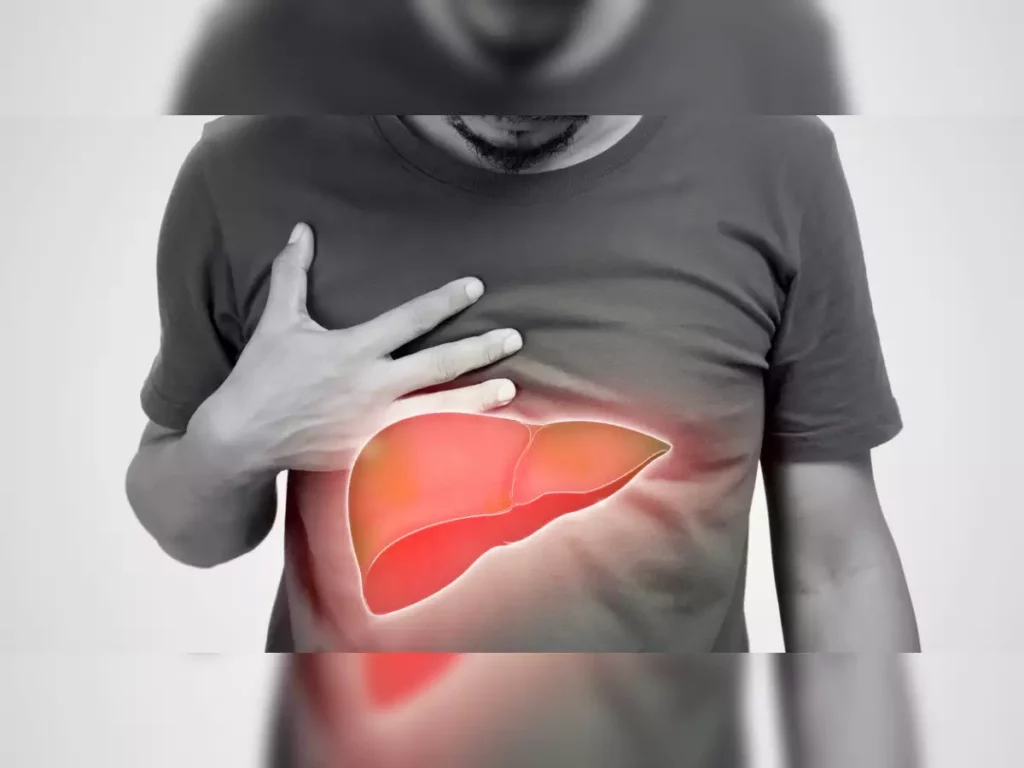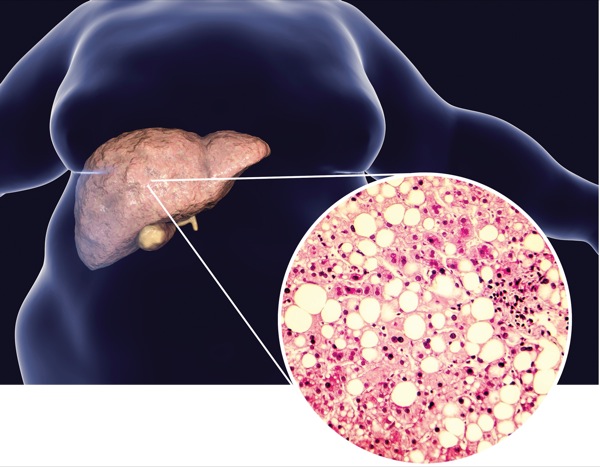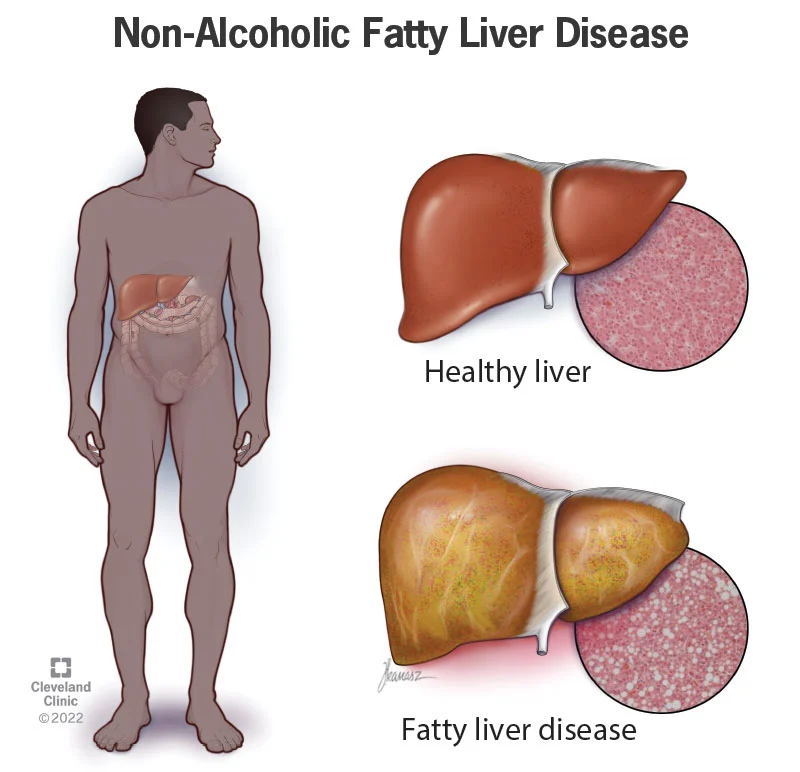Non-alcoholic fatty liver disease (NAFLD) is a condition characterized by the accumulation of excess fat in the liver, unrelated to alcohol consumption. Its prevalence has increased in recent years due to changes in lifestyle and diet.
If left untreated, NASH can progress to more serious liver disease. In this article we will discuss the early signs of fatty liver, its symptoms and possible treatment and diet options to control the disease.
Treatment of fatty liver
Currently, there is no specific medical treatment for NAFLD. However, management of this condition mainly revolves around lifestyle changes. Weight loss, exercise and a healthy diet are key components in reducing fat accumulation in the liver.
Regular physical activity, even something as simple as walking, can significantly improve liver health. Incorporating aerobic exercise, strength training and flexibility exercises into your routine can have positive effects on fatty liver.
Diet for fatty liver
A balanced diet is crucial for people with fatty liver. Although there is no one-size-fits-all approach, some general dietary guidelines can help manage the disease effectively. It is important to receive individualized medical guidance.
- Reduce added sugars and refined carbohydrates: high intake of sugar and refined carbohydrates can exacerbate fatty liver. Minimize consumption of sugary drinks, sweets and processed foods.
- Emphasize whole foods: include plenty of fruits, vegetables, whole grains and lean proteins in your diet. These nutrient-rich foods provide essential vitamins and minerals that support liver function.
- Healthy fats: opt for healthy fats found in avocados, nuts, seeds and olive oil. Avoid trans and saturated fats often found in fried and processed foods.
- Portion control: overeating, even healthy foods, can contribute to weight gain. Be mindful of portion sizes to maintain a healthy weight.
Symptoms of nonalcoholic fatty liver disease
In the early stages, NAFLD may not present any noticeable symptoms. However, as the disease progresses, some common signs may become apparent:
- Fatigue: feeling of excessive tiredness or weakness for no apparent reason.
- Abdominal discomfort: mild pain or discomfort in the right upper abdomen.
- Unexplained weight loss or weight gain: sudden changes in weight without changes in diet or exercise.
- Jaundice: yellowing of the skin and eyes due to impaired liver function.
- Enlarged liver: the doctor may discover an enlarged liver during a routine physical examination.

Non-Alcoholic Liver
It’s important to clarify that NAFLD is not caused by alcohol consumption. While both alcoholic and non-alcoholic fatty liver diseases involve fat accumulation in the liver, they have different causes and risk factors. Non-alcoholic fatty liver disease is primarily linked to obesity, insulin resistance, high blood sugar, and metabolic syndrome.
What else can we do to treat non-alcoholic fatty liver disease?
As mentioned, it is vital to see a medical specialist.
- Manage underlying health problems: Addressing and controlling related health conditions, such as obesity, type 2 diabetes, high blood pressure and high cholesterol, can help improve NAFLD. Controlling these conditions can reduce fat accumulation in the liver and prevent further liver damage.
- Medication: In some cases, doctors may prescribe certain medications to help control NASH. These may include:
a. Insulin sensitizers: medications can improve insulin sensitivity and reduce liver fat in some individuals.
b. Vitamin E: vitamin E supplements have been shown to improve liver enzyme levels in some patients with NASH.
c. Antioxidants: antioxidant supplements, such as vitamin C and vitamin E, may help protect liver cells from damage caused by oxidative stress.
It is essential to remember that medications should always be prescribed and monitored by a qualified healthcare professional.

More ways to treat NAFLD
- Weight loss medications: in cases of severe obesity, weight loss medications or bariatric surgery may be considered to help achieve significant weight reduction, which can positively impact NAFLD.
- Avoid unnecessary medications: some medications, like corticosteroids and certain painkillers, may worsen NAFLD. If possible, it’s best to avoid or limit the use of these medications, especially without proper medical supervision.
- Regular follow-ups and monitoring: regular visits to a healthcare provider are crucial to monitor the progress of NAFLD and adjust treatment plans as needed.
- Liver health supplements: some natural supplements, such as milk thistle, may be beneficial for liver health. However, their effectiveness for treating NAFLD requires further research, and it’s important to consult a healthcare professional before taking any supplements.
- Participate in clinical trials: researchers are continuously investigating new treatments for NAFLD. Participating in clinical trials can contribute to the advancement of knowledge and potentially provide access to innovative therapies.
Conclusion
Recognizing the early signs of Non-Alcoholic Fatty Liver Disease is crucial for timely intervention and effective management. If you suspect you may have fatty liver or are experiencing any of the symptoms mentioned, consult a healthcare professional for proper diagnosis and personalized guidance. Remember, adopting a healthy lifestyle and diet can go a long way in preventing and managing fatty liver, promoting overall liver health and well-being.














